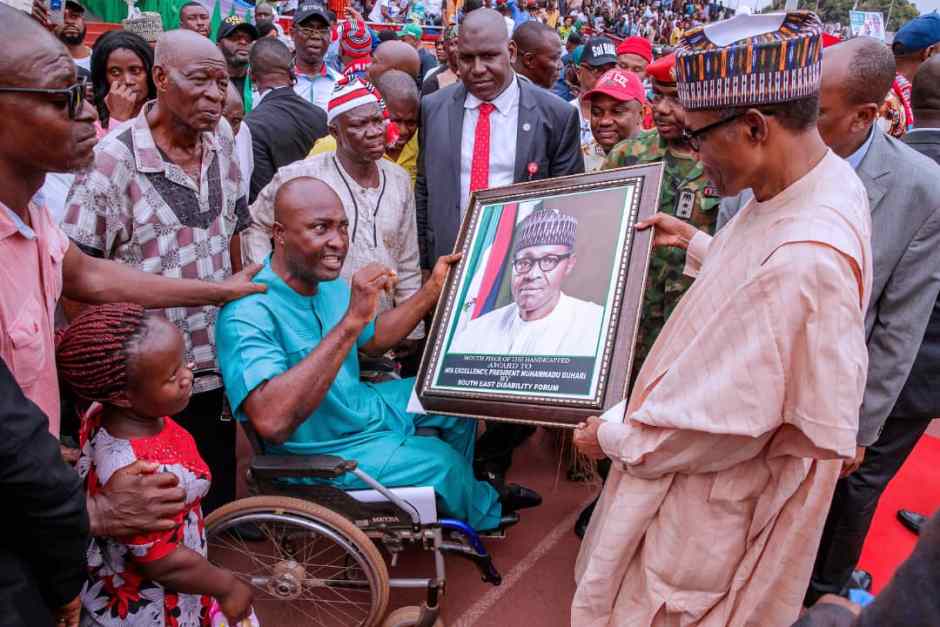#FactCheck: Has Anything Changed In 365 Days Since The Nigerian Disability Bill Was Signed Into Law? – Lanre Olagunju

In 2007, the Federal Government of Nigeria ratified and signed to the United Nations Convention on the Rights of Persons With Disabilities which requires that nations must take decisive steps towards making laws and policies to ensure total compliance to the provisions of the convention.
Former Presidents Olusegun Obasanjo and Goodluck Jonathan were unable to assent the Disability bill. During the Presidential Campaign of 2015, President Buhari promised the community of Persons With Disabilities during a stakeholders meeting in Lafia, Nassarawa State that he will do all within his constitutional means in collaboration with the National Assembly to pass laws which would criminalize discrimination and harmful practices against PWDs.
In November 2018, the 8th National Assembly led by Senator Olubukola Saraki completed necessary actions needed for the bill and sent it to the Presidency for assent, eventually, the bill was signed into law on the 24th of January, 2019.
What Does the Law Say?
The Nigerian Disability Law criminalizes any act of discrimination against any person with disabilities in Nigeria – this is targeted at restructuring society and enhancing the reintegration of PWDs. The law in its entirety frowns against all forms of discrimination against Persons With Disabilities. Also, the law places a huge emphasis on accessibility. It clearly states that no public institution or public building should be constructed without creating access for People With Disabilities which include, usable lifts and ram, toilets facilities amongst others.
The bill also states that 5% of all employment opportunities in public institutions must be set aside for PWDs. The bill further provides the right to education, right to health, right to political participation, right to employment, right to drive, right to communication, right to communal life, right to participation in cultural life, recreation, leisure and sports and priority in accommodation and emergencies.
The law compels service providers to make adequate provisions for PWDs and not discriminate against them in public transportation facilities such as airport, seaports railways, and busses.
The law imposes a fine of N1,000,000 for corporate bodies and N100,000 for individuals or a term of six months imprisonment for violations.
More importantly, it is established in Section 31 of the law that the National Commission for Persons with Disabilities with the Executive Secretary as the head will monitor compliance and adherence and also address complaints of harassment, discrimination and harmful practices, against PWDs.
In terms of accessibility as it concerns public buildings and automobiles, the law specifically provides a 5 -year transitional period for modification. To that effect, building plans to all public structures must be certified by the relevant authority to ensure compliance with the building code.
Any government official that approves or directs the approval of a building plan that is not in compliance with the building code commits an offence and is liable on conviction to a fine of at least N1,000,000 or a term of imprisonment of two years or both.
What has changed since the law was passed?
After one year, the Federal Ministry of Information is yet to play its role and responsibility in line with providing orientation for Nigerians towards behavioural change to better promote the right, dignity and socio-economic rights of persons with disabilities.
Also, the National Commission for Persons With Disabilities has not been established and there were no provisions for it in the 2020 appropriation bill. This implies that the commission saddled with the responsibility of providing guidelines, policy directives to ministries, departments and agencies can’t cater for the needs of PWDs.
Lanre Olagunju is a Lagos based Fact Checker, he is @Lanre_Olagunju on Twitter

